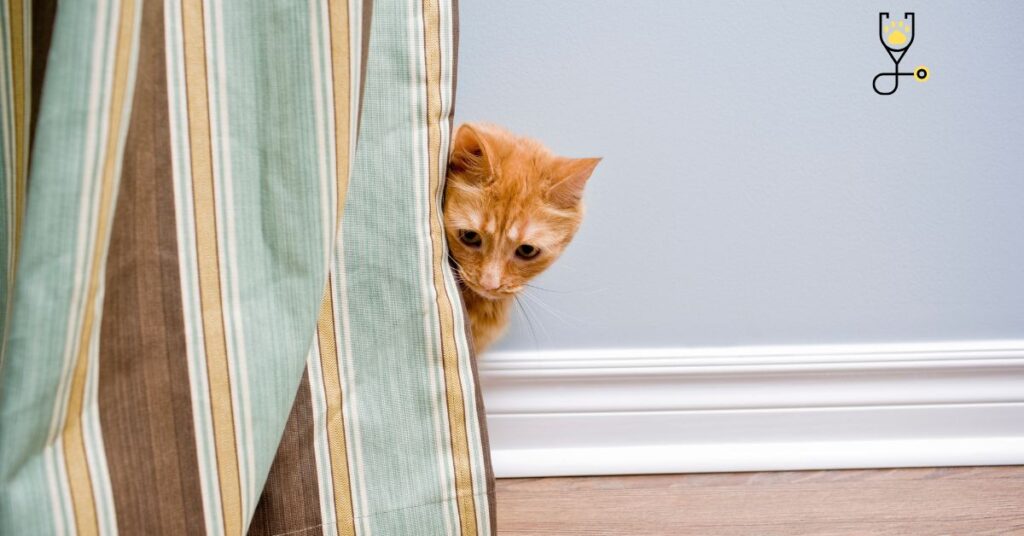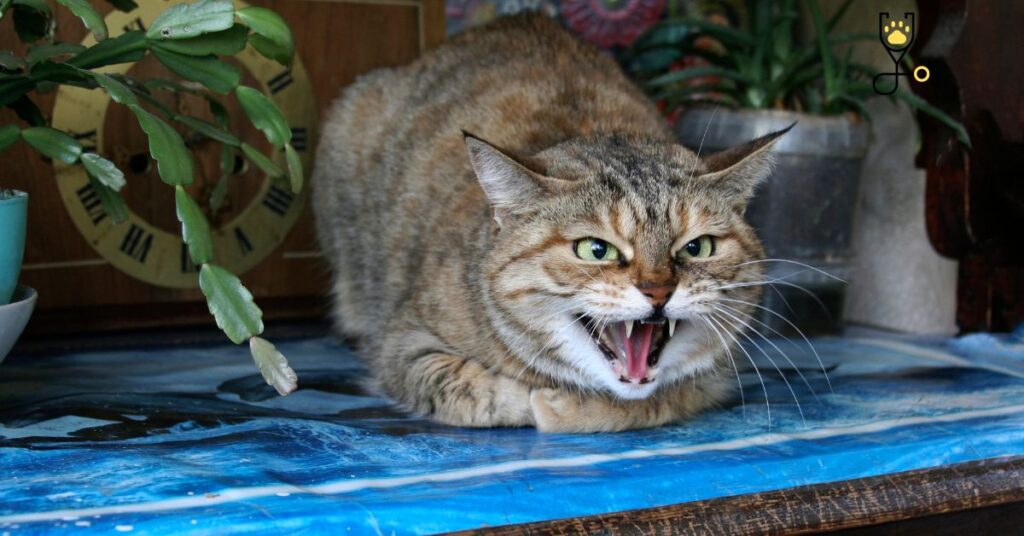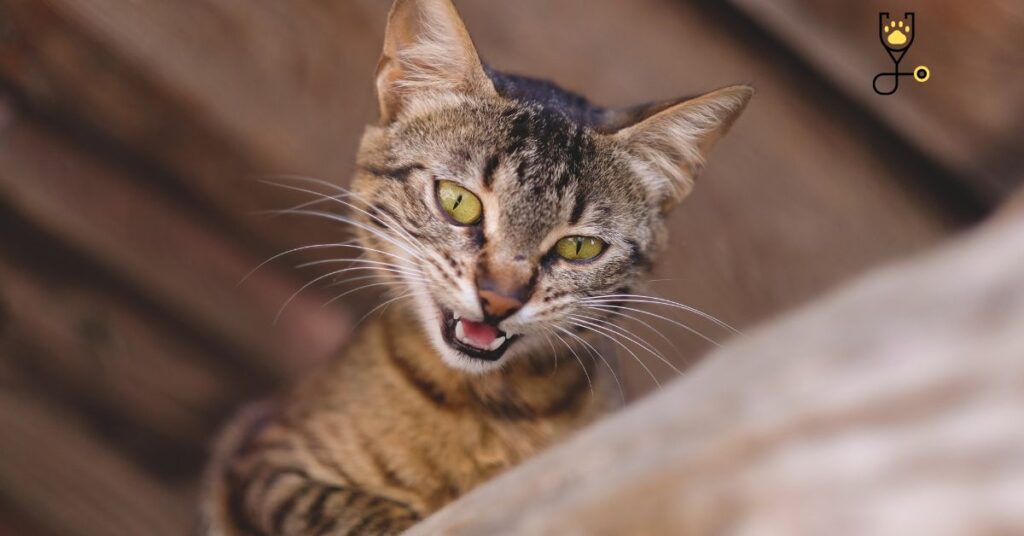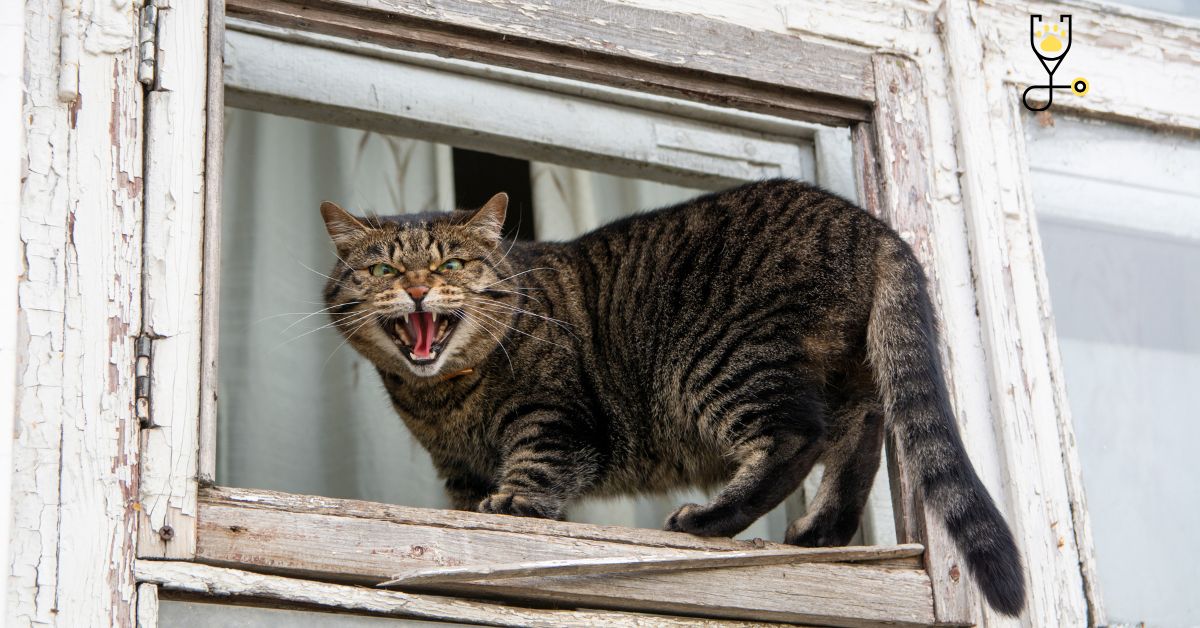Cats are known for being independent, but sometimes they can be aggressive. If you’re a cat lover, you may be wondering why your pet is acting out and how you can deal with it. Here are the top reasons why cats are aggressive, along with some tips on how to handle them.
properly socialized, they may be more prone to aggression.
1. Lack of socialization: If a cat hasn’t been properly socialized, it may be more prone to aggression. This means that they haven’t had much contact with other people or animals, and as a result, they may be scared or anxious around them. To socialize your cat, start by taking them to the vet for check-ups and vaccinations so they get used to being around people. Then, gradually introduce them to new people and animals in a safe and controlled environment.

2. Fear: Fear is one of the most common reasons for feline aggression. Cats may act out if they’re afraid of something or someone, and this can often be triggered by things like loud noises, unfamiliar environments, or even changes in their routine. If your cat is acting aggressively out of fear, it’s important to try to identify the source of their fear and help them feel more comfortable. This may involve slowly introducing them to new things, providing them with a safe place to hide, or using positive reinforcement training to help them associate good things with the thing they’re afraid of.
3. Territoriality: Cats are territorial creatures, and they may act aggressively if they feel like their territory is being threatened. This can happen if there’s a new pet in the home, someone is moving into your house, or even if you’ve recently rearranged the furniture. To help your cat feel more secure, try to keep their routine as consistent as possible and make sure they have plenty of hiding places and scratching posts in your home.

4. Pain: Cats can also become aggressive when they’re in pain. If your cat is acting out of character and you can’t figure out why it’s important to take them to the vet to rule out any medical problems. Many health conditions can cause cats to act aggressively, so it’s important to get a professional opinion if you’re concerned about your pet’s health.
5. Frustration: Sometimes, cats may act aggressively because they’re frustrated or bored. This can happen if they don’t have enough toys or stimulation, if they’re not getting enough exercise, or if they feel like they’re being ignored. To prevent frustration-related aggression, make sure you provide your cat with plenty of toys and attention and give them ample opportunities to run and play.

6. Hormones: Hormonal changes can also cause cats to act aggressively. This is most common in intact males during the breeding season, but it can also happen in spayed or neutered cats if they develop a medical condition that affects their hormones. If your cat is acting aggressively due to hormonal changes, the best course of action is to take them to the vet for a check-up and treatment.
7. Redirected aggression: Redirected aggression is a type of aggression that occurs when a cat is unable to take its frustration or anger out on the source of its problem, so they redirect it towards another person or animal. For example, if a cat sees another cat outside and becomes frustrated because it can’t get to it, it may take its frustration out on the first person they see when they come back inside. To prevent redirected aggression, it’s important to try to identify the source of your cat’s frustration and remove it if possible. If that’s not possible, you may need to provide your cat with additional outlets for their energy, such as more toys or more opportunities to run and play.
8. Predatory aggression: Predatory aggression is a type of aggression that is often seen in outdoor cats. It’s an instinctive behavior that kicks in when a cat sees something that they perceive as prey, such as a bird or a squirrel. While it may seem harmless fun to watch your cat stalk and chase after its prey, it’s important to remember that this behavior can be dangerous for both your cat and the animal they’re hunting. If you’re concerned about your cat’s predatory behavior, the best thing you can do is provide them with plenty of toys and playtime so they can satisfy their hunting instincts without putting themselves or other animals at risk.
Tips to deal with cat’s anger
1. Don’t take it personally
It’s important to remember that when a cat acts aggressively, it’s not personal. They’re not doing it to spite you or because they don’t like you, they’re just acting on instinct. If you can keep this in mind, it will be easier to stay calm and level-headed when dealing with an aggressive cat.
2. Stay calm and assertive
When faced with an aggressive cat, it’s important to stay calm and assertive. Yelling or trying to physically restrain your cat will only make them more agitated and increase the chances of them biting or scratching you. If possible, try to remove yourself from the situation until your cat has calmed down.
3. provide outlets for their energy
One of the best ways to deal with an aggressive cat is to provide them with outlets for their energy. This can include toys, scratching posts, and plenty of opportunities to run and play. By giving your cat an outlet for their aggression, you can help prevent them from taking it out on you or other members of your household.
4. Speak to a professional
If your cat’s aggression is severe or if you’re struggling to deal with it, it’s important to speak to a professional. A veterinarian or animal behaviorist can help you identify the cause of your cat’s aggression and develop a treatment plan to help reduce or eliminate it.
Conclusion
While aggression is a normal part of a cat’s behavior, it can become a problem if it’s directed toward people or other animals. If you’re concerned about your cat’s aggression, the best thing you can do is speak to a professional and take steps to provide them with outlets for their energy. By understanding the reasons behind your cat’s aggression and taking steps to prevent it, you can help keep your cat and those around them safe.
Frequently asked questions about the cat’s anger
1. What are the most common reasons for a cat to become aggressive?
There are several reasons why a cat may become aggressive, including fear, insecurity, hunger, and pain. However, the most common reason for the aggression is frustration or redirected aggression.
2. How can I tell if my cat is feeling aggressive?
There are several signs that your cat may be feeling aggressive, including hissing, growling, flattening its ears, and swiping with its claws. If you see any of these signs, it’s important to back away and give your cat some space.
3. What should I do if my cat becomes aggressive?
If your cat becomes aggressive, it’s important to stay calm and assertive. Try to remove yourself from the situation until your cat has calmed down. You can also try to provide outlets for their energy, such as toys and playtime. If the aggression is severe, it’s best to speak to a professional.
4. Is there anything I can do to prevent my cat from becoming aggressive?
There are several things you can do to prevent your cat from becoming aggressive, including providing them with plenty of toys and playtime, ensuring they have a good diet, and keeping them up-to-date on vaccinations. You should also avoid punishment and try to create a calm environment in your home.
5. My cat is aggressive toward other animals. What can I do?
If your cat is aggressive toward other animals, it’s important to provide them with plenty of opportunities to exercise and play. You should also try to keep them up-to-date on vaccinations and regularly take them to the vet for check-ups. If the aggression is severe, you may need to speak to a professional.







